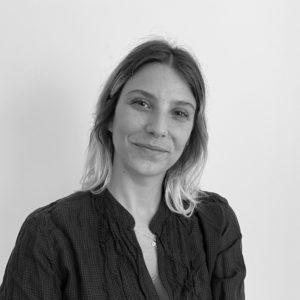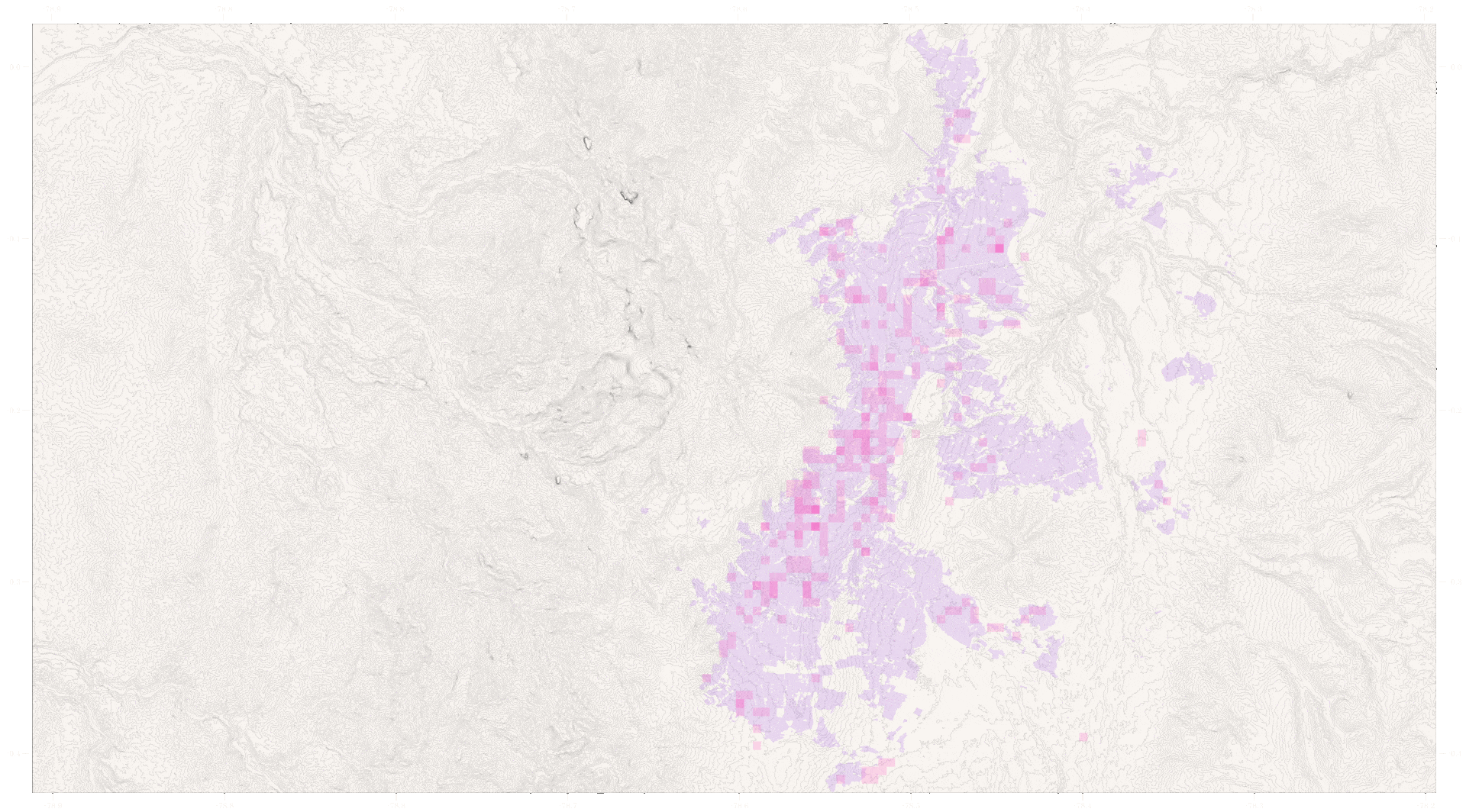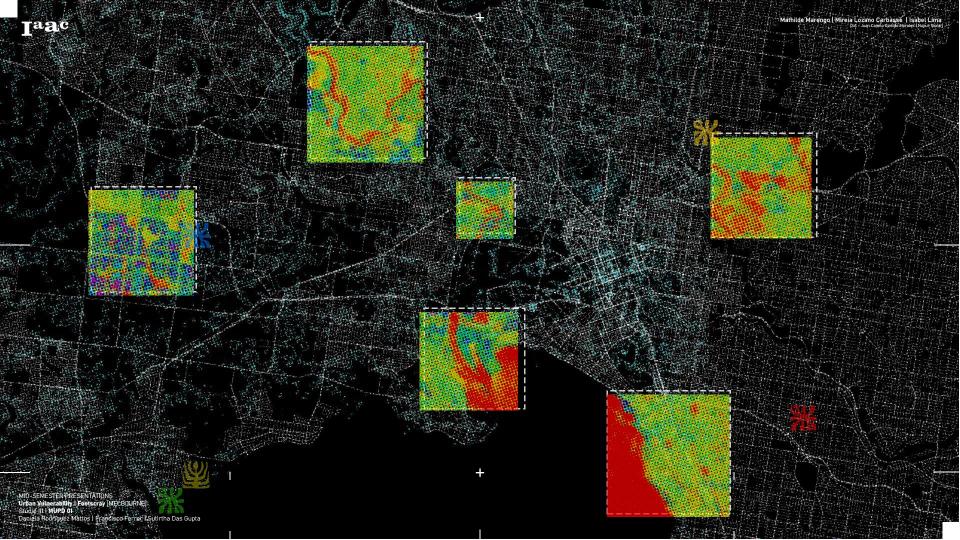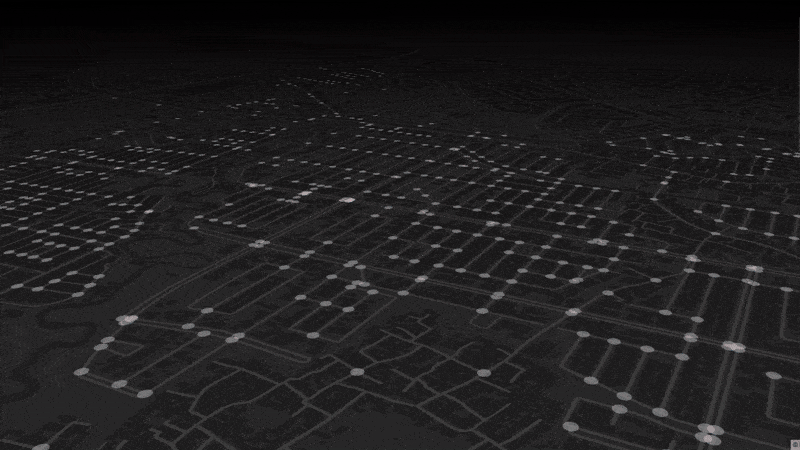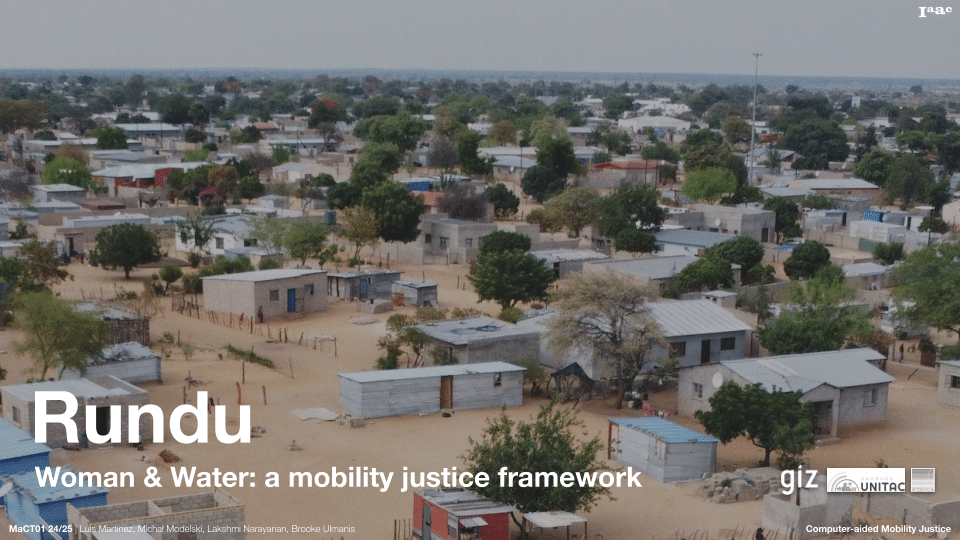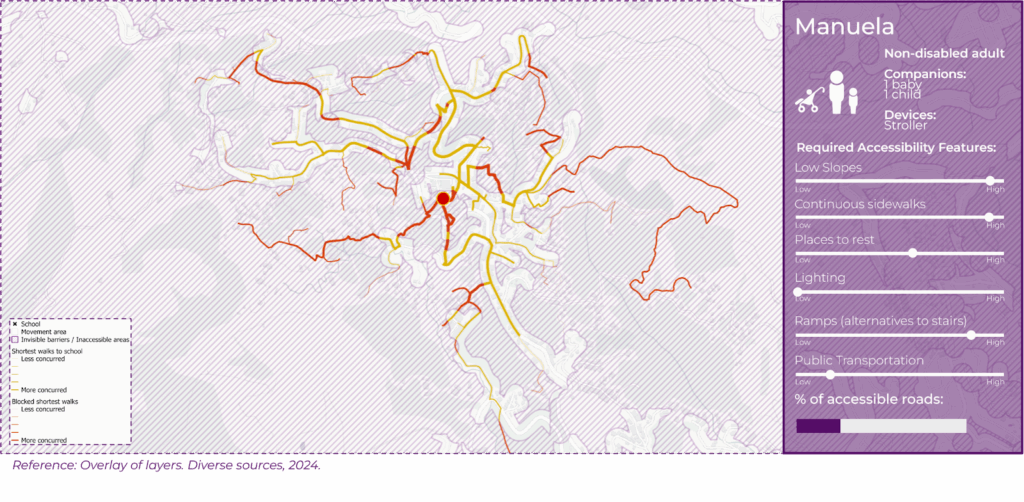
Credits: MaCT01 2023/24, Internet of Gender Inclusive Buildings, Project: Invisible Barriers, Visible Caregivers, Students: Azucena Ospina, Juan Camilo Giraldo, Pedro Ariel Rovasio Aguirre and Nupur Sircar, Faculty: Honorata Grzesikowska, Mathilde Marengo, Isabel Lima, Iacopo Neri.
Description
Decarbonizing mobility is one of the most pressing challenges in cities today. The transition to sustainable transport is not just about reducing emissions – it must also be just and inclusive, ensuring that digital and technological advancements in mobility serve all citizens. Current mobility systems remain biased, shaped by male-centric data collection and underrepresentation of women in mobility sectors. Existing gender, data and digital divides lead to mobility systems that fail to fully address specific travel needs, accessibility concerns, and safety issues.
This course aims to equip students with the knowledge and skills needed to address gender and intersectional biases in urban planning and mobility through inclusive design and data-driven approaches. The key objectives include:
- Bridging the Gender Divide in Mobility: Highlighting the critical role of women as primary users of public transport and micro-mobility services while addressing their underrepresentation in mobility policy, urban planning, and data-driven decision-making processes.
- Advancing Mobility Justice: Focusing on gender-inclusive design to explore how data analytics can be leveraged to identify gaps, mitigate biases, and promote equitable access to mobility solutions for diverse populations from an intersectional perspective.
Developing Future-Proof Digital Skills: Preparing students for the digital transformation of urban transport by embedding AI-driven analysis, digital mobility solutions, and participatory data collection techniques into educational programs.
Learning Objectives
At course completion the student will:
- Critically engage with mobility justice frameworks to identify and respond to injustices in the design of urban spaces, infrastructures, and mobility systems.
- Apply feminist methodologies and intersectional thinking to reveal and address the layered experiences of exclusion and access in urban contexts, especially across gender, race, class, and ability.
- Develop and propose gender-inclusive design strategies that reflect the diverse needs and lived realities of city users, particularly in relation to transportation.
- Use urban data analytics to assess spatial equity, mobility patterns, and access gaps, translating insights into inclusive design interventions.
- Integrate computer-aided design and scenario-building tools to explore and visualize equitable futures, with an emphasis on participation, justice, and usability.
- Strengthen critical and design thinking skills to analyze complex urban challenges and propose responsive, justice-oriented spatial solutions in heterogeneous contexts.



